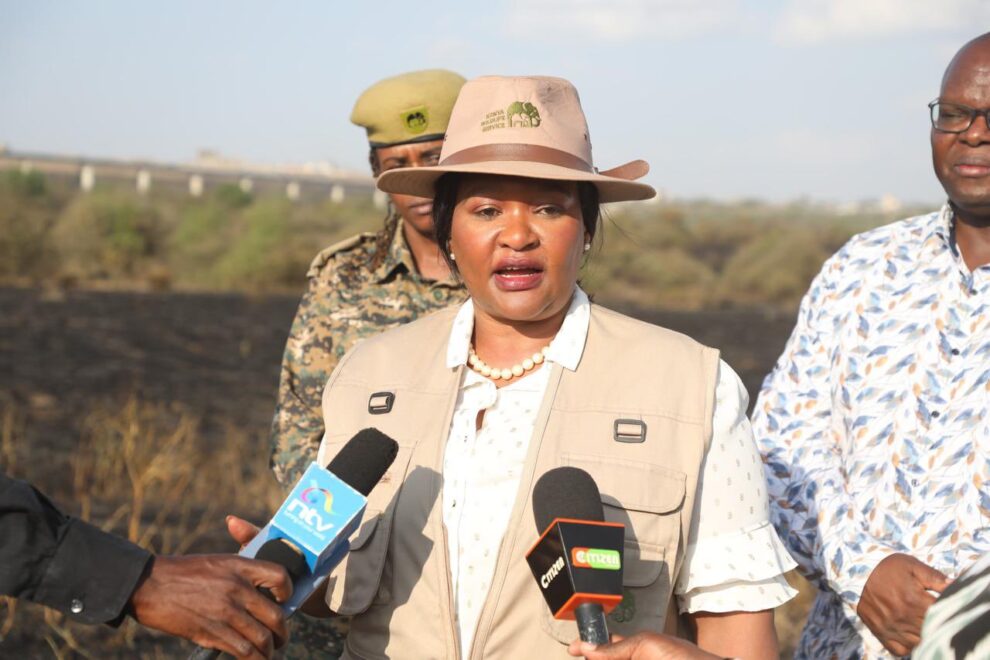Kenya’s plan to send cheetahs to India has stirred growing unease among conservationists who say the move is being done in secrecy and could endanger the country’s wildlife.
Reports from The Times of India indicate that talks between Nairobi and New Delhi are already underway to send between eight and ten cheetahs to India by 2026.
The translocation is part of India’s “Project Cheetah,” an initiative launched to restore its extinct cheetah population after more than seven decades.
However, concerns are mounting over Kenya’s silence and the lack of transparency surrounding the deal.
Sources suggest that the animals will be sourced from Kenya’s major reserves, including Maasai Mara, Tsavo, and Samburu, and relocated to either Kuno National Park or the Gandhinagar Wildlife Sanctuary in India’s Madhya Pradesh state.
These parks already host cheetahs that were previously flown in from Namibia and South Africa. Yet, the project in India has faced serious setbacks.
Since 2022, 11 out of the 20 imported cheetahs have died, raising questions about the suitability of India’s environment and management systems for sustaining the species.
Despite these worrying statistics, India continues to expand the project. President Droupadi Murmu has been touring African countries such as Botswana to formalize new supply agreements that would see more cheetahs transported by late 2025 or early 2026.
Conservationists believe that Kenya’s involvement is meant to help India increase genetic diversity within its cheetah population, but many say this could come at a high ecological cost to Kenya.
The country’s wild cheetah population, estimated between 800 and 1,200, already faces pressure from poaching, shrinking habitats, and conflicts with humans.
Environmental experts are warning that removing even a small number of cheetahs from the wild could destabilize predator populations in Kenya’s fragile ecosystems.
One Nairobi-based conservationist criticized the plan as “a political gesture disguised as conservation,” arguing that Kenya should be focusing on protecting its dwindling wildlife rather than exporting it.
Others have questioned whether Kenya will receive any meaningful compensation or whether the move is being driven by diplomatic pressure from India.
India’s cheetah program has not lived up to its expectations. Despite heavy investment and global attention, the animals continue to die from heatstroke, lack of prey, and stress.
Only 16 of the 26 cubs born in India since 2022 have survived, and most adult deaths have been linked to poor adaptation to their new habitat.
Experts say that importing more cheetahs from Kenya and Botswana without addressing these systemic problems may simply lead to more deaths and wasted resources.
In Kenya, conservation groups are demanding answers. They want the government to release the details of the proposed agreement, including whether environmental assessments or stakeholder consultations were conducted.
Many feel excluded from a decision that affects Kenya’s natural heritage. “This is our wildlife, our pride,” said a senior member of the Wildlife Conservation Alliance.
“The public has a right to know how and why cheetahs are being sent abroad.”
The Ministry of Tourism and Wildlife has not made an official statement, though insiders claim that negotiations between Kenya and India are nearing completion. If finalized, Kenya will become the third African country after Namibia and Botswana to supply cheetahs under Project Cheetah.
But the debate over whether this plan serves conservation or political interests remains unresolved. Critics insist that Kenya’s global reputation as a conservation leader is at stake and that trading wildlife in secret agreements risks undermining decades of progress in animal protection.





















Add Comment